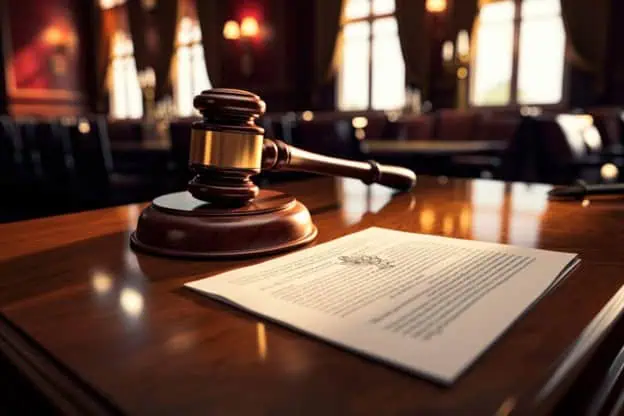Sponsored Content | Digital Free Press
Facing criminal charges in San Antonio can be one of the scary experiences as the state of Texas holds some of the most stringent laws in the United States.
So, whether you’re dealing with misdemeanors or felonies, knowing the key defenses can significantly impact the outcome of your case. Once you know the defenses, you will be better positioned to represent your case and get the best possible outcome.
This article lays down some of the most common legal defenses in criminal trials in San Antonio so you will be well-versed in the know-how on navigating the criminal justice system. Let’s get started!

1. Role of San Antonio Defense Attorney
One of the best things you can do if you’ve been arrested on a criminal charge is to speak to an experienced San Antonio Criminal Defense Attorney. Your qualified attorney will walk you through the facts of your case, discover the flaws in the state’s case, and construct a defense based on the details of your case.
For example, if you’ve been arrested on a DUI charge, your attorney can dispute the breath test reading’s validity or the actions of the police officer. If you’ve been arrested on a charge of drug possession, your attorney can dispute that the search and seizure were unlawful and will exclude material evidence.
Hence, a seasoned attorney can negotiate with the prosecutor to reduce the charges or penalties, even the dismissal of the case. Their knowledge of criminal law and the courts within the locality also dramatically influences the outcome of your case.
It is, therefore, essential to have legal representation at the onset of the process to ensure that your rights are protected and to prepare a legitimate defense.

2. No Evidence or Insufficient Evidence
One of the simplest defense methods for a criminal charge is to argue that the government lacks enough evidence to find you guilty beyond a reasonable doubt. In the American model of justice, the government has the entire burden of the case, and thus, the government must present convincing evidence to the court to convict.
If the government’s evidence is weak, contradictory, or circumstantial, your lawyer can argue that the charges must be dismissed. For instance, in robbery or assault, the prosecution must establish the suspect’s connection to the crime beyond a reasonable doubt.
Hence, with no witnesses, use of cameras, and physical evidence that connects you to the crime, your attorney can request that the case be stricken out of hearing in court. Additionally, if the evidence is illegally obtained or mishandled, it is not admissible to be used in the case, and it will also help strengthen the prosecution case.
3. Defense of Others or Self-Defense
In the case of violent offenses such as murder and assault, the most common defense is the self-defense or the defense of another person. As given under the law of Texas, its citizens are permitted to use reasonable force to protect themselves and other individuals from imminent danger.
To use the defense of self-defense argument effectively, your attorney must establish that you felt threatened at once and that your response was commensurate with the threat. For example, if you were accused of assault after a physical altercation, your attorney would defend you by saying that you were acting in self-defense because the other person was the aggressor.
Similarly, in the case of the use of deadly force, your attorney would defend you by saying that you reasonably believed that your life or the life of another person was in danger. This defense would be particularly relevant where the alleged victim was the initial aggressor or posed a significant threat.
4. Alibi Defense
One of the strongest criminal defenses is the alibi defense, which proves you were not at the scene where the alleged crime took place when it was being done. An alibi is proved by eyewitness testimony, security camera recordings, or other electronic evidence of your location when the crime was being committed (such as GPS traces or phone calls).
For example, you were miles away when you went to a family reunion where you cannot be accused of committing the burglary. Your attorney will then provide evidence of your alibi using relatives or time-stamped photos. The defense is proper where the state’s case is based primarily on eyewitness identification, which is unreliable.

5. Identity Mistaken
Misidentification is a prevalent problem in criminal defense cases, particularly those that rely on eyewitness testimony. Human memory is imperfect, and witnesses can misidentify a suspect because of stress, poor lighting, or other circumstances. If you feel you were wrongly identified as the offender, your lawyer can question the credibility of the eyewitness testimony.
For example, your attorney will present evidence that the suspect was only partly visible to the suspect or that the suspect’s appearance does not match the perpetrator’s description of the suspect given by the witness.
Your attorney may also contend that the identification procedure was unreliable, e.g., in case the police used the suggestive photo array or lineup. Your attorney will discredit the case of the prosecution by challenging the identification’s reliability.
6. Entrapment
Entrapment takes place when the police lead you to commit an offense that you wouldn’t otherwise commit. It is used most commonly in drug cases and solicitation cases. To make the entrapment argument successfully, your attorney must prove that the police initiated the enticement to commit the offense and that you weren’t already inclined to commit the offense.
Suppose you were arrested on charges of drug sales because you repeatedly solicited the police to buy drugs from you. Your attorney would then try the entrapment defense. Such a defense requires scrutiny of the circumstances of the arrest and the police conduct.

7. Defense of Mental Incapacity or Insanity
Defendants of bizarre cases will say that they lacked the mental capacity to understand the nature of the act at the time of the offense. The insanity defense is difficult to make and requires extensive psychological evaluation and expert testimony.
Your lawyer will need to prove that you had a grave mental disease or defect that denied you the capacity to know right from wrong to succeed with this defense. For example, if you committed the violent act but were experiencing psychosis at the time you committed it, your attorney would present the defense that you were not in control.
Although the defense is infrequently used and difficult to prove, it is a defense if the situation is right.
Conclusion
Knowing the most critical San Antonio criminal defense strategies is essential if you are charged with a crime. From challenging the evidence to raising the defense of misidentity or self-defense, numerous methods can be used to protect your rights and achieve a favorable outcome.
The first step in building a strong defense and navigating the criminal justice process is meeting a seasoned San Antonio Defense Attorney. By knowing and acting on the facts and information, you will stand the best chance to achieve a successful outcome in your case.




























